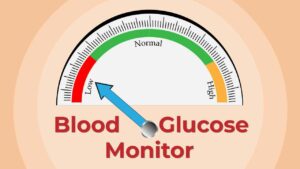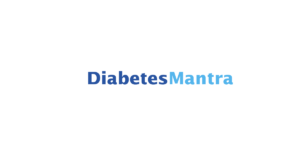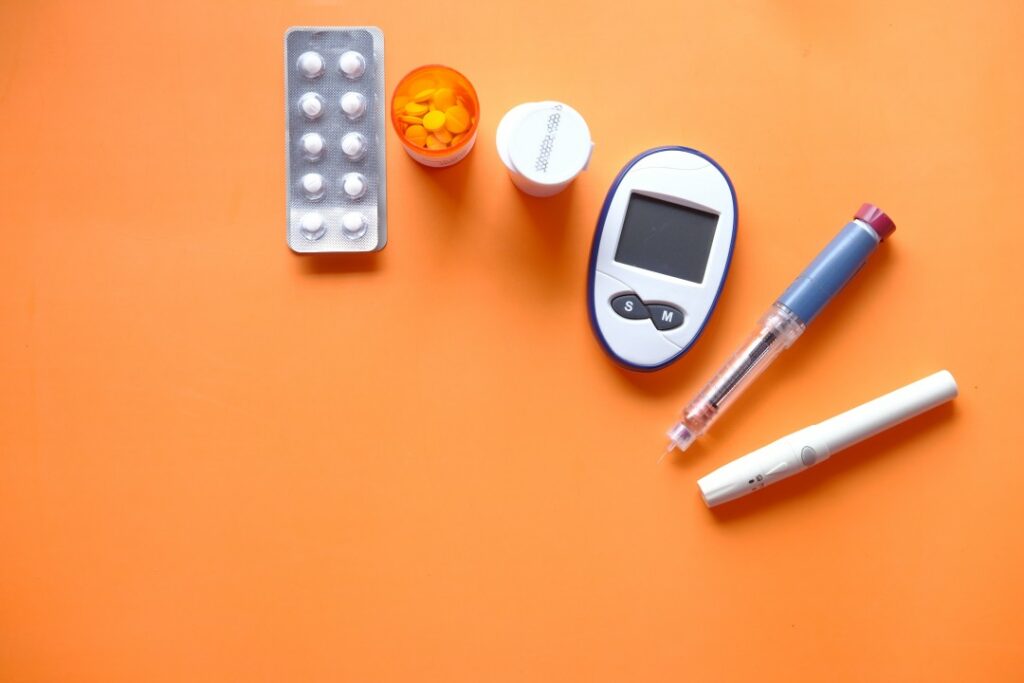Gestational Diabetes Mellitus (GDM) is a condition characterized by high blood sugar levels that develop during pregnancy. Managing GDM is crucial to ensure the well-being of both the mother and the baby. This blog aims to provide a detailed overview of GDM treatment options and strategies, shedding light on the importance of proper care during pregnancy.
Contents
Diagnosing Gestational Diabetes Mellitus (GDM)

Gestational Diabetes Mellitus (GDM) is a condition that demands early detection for effective management. The diagnostic process involves specific screening tests to identify elevated blood sugar levels during pregnancy. Early diagnosis is crucial, as untreated GDM can lead to complications for both the mother and the baby.
- Screening Tests for GDM:
- Oral Glucose Tolerance Test (OGTT): The OGTT is the gold standard for diagnosing GDM. Typically conducted between the 24th and 28th weeks of pregnancy, this test involves fasting overnight, followed by the consumption of a glucose solution. Blood samples are then taken at intervals to measure how the body processes glucose. Elevated blood sugar levels during the test indicate impaired glucose tolerance.
- Glucose Challenge Test (GCT): The GCT is often the initial screening test. It involves the pregnant woman drinking a sugary solution, and a blood sample is taken after an hour. If the blood sugar levels are higher than normal, it may lead to further diagnostic testing with the OGTT.
- GDM Diagnosis Criteria:
- Fasting Blood Sugar Levels: Fasting blood sugar levels are measured after an overnight fast. Levels higher than the established threshold suggest impaired fasting glucose and may prompt further investigation.
- Two-Hour Postprandial Blood Sugar Levels: Postprandial blood sugar levels are measured two hours after consuming a meal. Elevated levels at this point can indicate difficulty in managing glucose levels effectively, pointing toward GDM.
Different Gestational Diabetes Mellitus (GDM) Treatment Methods
Gestational Diabetes Mellitus (GDM) treatment involves a multi-faceted approach that focuses on managing blood sugar levels to ensure the health and well-being of both the mother and the baby. The treatment methods for GDM typically include lifestyle modifications, monitoring blood sugar levels, and, in some cases, the use of medications. Here’s an overview of different GDM treatment methods:
Lifestyle Modifications

- Dietary Changes: A well-balanced diet is fundamental in managing GDM. This includes controlling carbohydrate intake, emphasizing whole foods, and incorporating lean proteins, fruits, and vegetables. A registered dietitian can provide personalized dietary guidance based on individual needs.
- Regular Physical Activity: Exercise plays a crucial role in managing blood sugar levels. Engaging in moderate-intensity activities, such as walking or swimming, can help improve insulin sensitivity. Pregnant women need to consult with their healthcare providers before starting any exercise regimen.
- Weight Management: Achieving and maintaining a healthy weight is a key aspect of GDM treatment. This may involve working with healthcare professionals to set realistic weight goals and adopting safe practices for weight management during pregnancy.
Medications
- Insulin Therapy: Insulin is a hormone that helps regulate blood sugar levels. Some women with GDM may require insulin therapy to control their blood glucose levels effectively. Insulin can be administered through injections, and the dosage is tailored to the individual’s needs.
- Oral Medications: In some cases, oral medications such as glyburide or metformin may be prescribed. These medications work to lower blood sugar levels and are typically considered when lifestyle modifications alone are insufficient.
Monitoring Blood Sugar Levels

- Self-Monitoring of Blood Glucose (SMBG): Regular monitoring of blood sugar levels at home is a crucial component of GDM management. This involves using a glucose meter to measure blood sugar levels multiple times a day. The results help individuals and healthcare providers adjust treatment plans as needed.
- Target Blood Sugar Levels: Maintaining blood sugar levels within target ranges is essential for preventing complications associated with GDM. Target levels are usually established in consultation with healthcare providers and may include fasting and postprandial (after meals) targets.
Patient Education
- Empowering with Knowledge: Education is a cornerstone of GDM treatment. Pregnant individuals diagnosed with GDM benefit from understanding the condition, its implications, and the importance of adhering to the prescribed treatment plan. Education covers topics such as dietary management, medication administration, monitoring blood sugar levels, and recognizing signs of complications.
- Addressing Concerns and Questions: GDM can be emotionally challenging for expectant mothers. Providing a platform for patients to express their concerns and ask questions is crucial. This open communication fosters a collaborative relationship between healthcare providers and patients, leading to better adherence to treatment recommendations.
Continuous Monitoring and Adjustment
- Regular Check-ups: Throughout the pregnancy, regular check-ups with healthcare providers are essential. These appointments involve monitoring the mother’s health, and the baby’s development, and adjusting the treatment plan as needed. Changes may include modifications to dietary recommendations, insulin dosage adjustments, or alterations in medication regimens.
- Dynamic Treatment Plans: GDM management is not static; it requires ongoing evaluation and adjustment. As the pregnancy progresses, hormonal changes and evolving maternal and fetal needs may necessitate modifications to the treatment plan. Close collaboration between the patient and the healthcare team ensures that the approach remains tailored to the specific requirements of the individual.
Postpartum Follow-up
- Monitoring Blood Sugar Post-Delivery: GDM does not always persist after childbirth, but it increases the risk of developing Type 2 Diabetes in the future. Postpartum follow-up care involves monitoring blood sugar levels, usually through an oral glucose tolerance test, to assess the individual’s risk of developing diabetes.
- Nutritional Guidance Post-Delivery: After giving birth, dietary habits continue to play a crucial role in managing blood sugar levels, especially for individuals with a history of GDM. Nutritionists or dietitians provide guidance on postpartum dietary choices to support overall health.
Alternative Therapies:
- Mind-Body Practices: Practices such as prenatal yoga, meditation, and mindfulness can contribute to stress reduction and emotional well-being during pregnancy. While these practices may not directly impact blood sugar levels, they can be valuable additions to an overall treatment plan by promoting relaxation and mental health.
- Herbal Supplements: Some individuals explore the use of herbal supplements, such as bitter melon or cinnamon, as potential adjuncts to traditional treatment methods. However, it is crucial to consult with healthcare providers before incorporating any supplements, as their safety and efficacy during pregnancy may not be well-established.
Continuous Glucose Monitoring (CGM)
- Real-Time Blood Sugar Data: CGM involves the use of a sensor placed under the skin to continuously monitor glucose levels in real time. This technology provides a more comprehensive picture of blood sugar fluctuations throughout the day, offering insights that can inform treatment adjustments.
- Early Detection of Trends: CGM allows for the early detection of trends or patterns in blood sugar levels, enabling proactive adjustments to the treatment plan. This can be particularly beneficial in managing postprandial glucose excursions and maintaining tighter control.
Sources To Get Gestational Diabetes Mellitus (GDM) Treatment Methods

When seeking information about Gestational Diabetes Mellitus (GDM) treatment methods, it’s important to rely on reputable sources that provide evidence-based and accurate information. Here are some online providers and platforms where you can find reliable information on GDM treatment:
- Diabetes Mantra: Diabetes Mantra is a renowned medical institution that offers comprehensive information on various health conditions, including GDM. Their website provides detailed articles, treatment guidelines, and lifestyle recommendations.
- Centers for Disease Control and Prevention (CDC) – Pregnancy and Diabetes (cdc.gov): The CDC provides valuable information on pregnancy and diabetes, including GDM. Their website offers resources for both healthcare professionals and pregnant individuals, covering topics such as prevention, screening, and treatment.
- National Institute of Diabetes and Digestive and Kidney Diseases (NIDDK) – Gestational Diabetes (niddk.nih.gov): NIDDK, a part of the National Institutes of Health (NIH), offers in-depth information on gestational diabetes. Their resources cover various aspects of GDM, including treatment approaches, potential risks, and long-term implications.
- WebMD (webmd.com): WebMD is a widely recognized health information platform that provides articles and expert-reviewed content on a variety of health topics. Their section on gestational diabetes offers insights into treatment options and lifestyle modifications.
- Healthline (healthline.com): Healthline is a trusted health information provider with articles reviewed by medical experts. Their content on gestational diabetes includes information on treatment methods, dietary guidelines, and monitoring blood sugar levels.
- BabyCenter (babycenter.com): BabyCenter is a popular online resource for pregnancy and parenting information. Their section on gestational diabetes includes articles on treatment methods, lifestyle changes, and coping strategies during pregnancy.
- UpToDate (uptodate.com): UpToDate is a clinical decision support resource used by healthcare professionals. While access to full content may require a subscription, it’s often available through healthcare providers or institutions. UpToDate offers evidence-based information on GDM treatment approaches.
Tips To Keep in Mind for Gestational Diabetes Mellitus (GDM) Treatment
Managing Gestational Diabetes Mellitus (GDM) involves a combination of lifestyle modifications, monitoring blood sugar levels, and, in some cases, medication. Here are some essential tips to keep in mind for effective GDM treatment:
- Attend Regular Check-ups: Schedule and attend all recommended prenatal check-ups with your obstetrician, endocrinologist, and other members of your healthcare team. Regular monitoring allows for timely adjustments to your treatment plan based on your evolving health and the baby’s development.
- Stay Hydrated: Drink an adequate amount of water throughout the day to stay hydrated. Avoid sugary drinks, and limit caffeine intake as excessive caffeine consumption may affect blood sugar levels.
- Manage Stress: Practice stress-reduction techniques, such as deep breathing, meditation, or prenatal yoga. Seek emotional support from friends, family, or support groups to help manage the emotional challenges associated with GDM.
Conclusion
In conclusion, effective management of Gestational Diabetes Mellitus (GDM) requires a holistic approach, encompassing lifestyle adjustments, regular monitoring, and collaboration with healthcare professionals. Adhering to treatment plans, staying informed, and maintaining open communication ensure the best outcomes for both the mother and the baby during and after pregnancy.
Do you want to get rid of diabetes? Join our online diabetes treatment program and reverse Diabetes naturally through lifestyle changes such as a Personalized Diet plan, Exercise, Yoga, dieticians, and health coaches.

